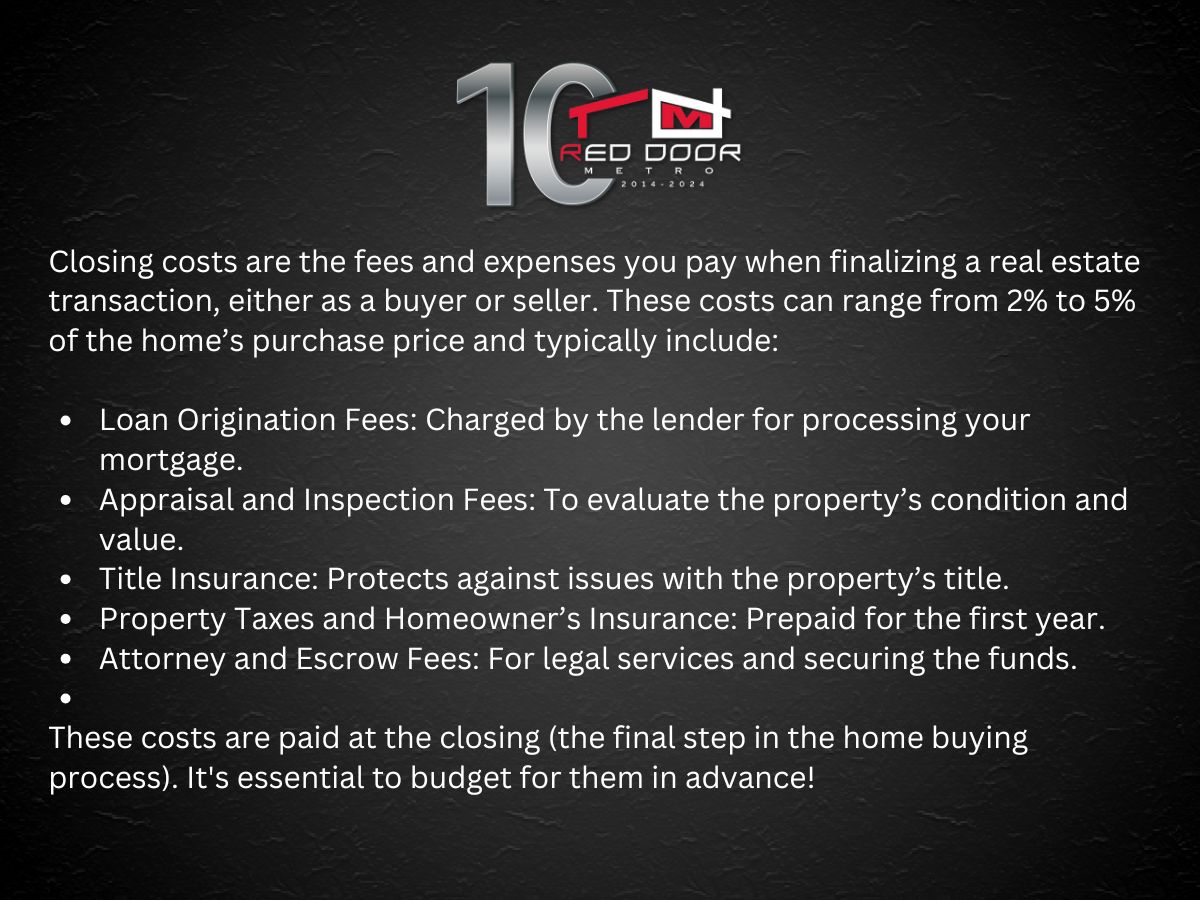What Are Closing Costs?
When you buy a newly built home in Virginia, there are several fees you need to pay, called closing costs. These are charges you pay at the end of the buying process to officially transfer ownership of the property. The amount and type of closing costs can vary, but there are some common fees you should know about.

Common Closing Costs Buyers Usually Pay
Most of the time, the buyer is responsible for covering the following costs:
- Loan Origination Fees: These are charges from your lender for processing your mortgage.
- Appraisal Fees: The cost to have a professional determine the value of the property.
- Credit Report Fees: Fees to get your credit report for the mortgage approval process.
- Title Search Fees: Charges for checking the history of the property’s ownership to make sure it has a clear title.
- Title Insurance: Protects both the lender and the buyer in case there are issues with the title after the purchase.
- Transfer Taxes: Taxes you pay to the state or local government for transferring the property to your name.
- Recording Fees: Fees to officially record the new ownership of the property with the local county office.
- Attorney’s Fees: If you hire a lawyer to help with the home-buying process, you will need to pay for their services.
Can You Negotiate Closing Costs?
Yes, even though buyers typically pay the majority of closing costs, there are ways to lower these costs or share them with the seller or builder:
- Seller Credits: You can negotiate with the seller to cover some of the closing costs. This is more common in markets where homes aren’t selling quickly.
- Builder Incentives: Builders of new homes often offer incentives to help attract buyers. This could include paying for some closing costs or offering a lower interest rate.
- Mortgage Rate Lock: Locking in your mortgage rate early can protect you from potential interest rate hikes.
- Compare Lenders: Shop around to different mortgage lenders. Comparing fees and rates can help you find the best deal and save on closing costs.
Other Factors to Keep in Mind
- Seller’s Market: In a seller’s market, where there are more buyers than homes available, sellers have more power. This means you might not have much room to negotiate and could end up paying more of the closing costs.
- Buyer’s Market: If it’s a buyer’s market (where there are more homes for sale than buyers), you might be able to negotiate for the seller to cover some of the closing costs.
- Regional Differences: Closing cost rules and customs can vary by region, so it’s a good idea to talk to a local real estate agent to understand the specific practices in your area.
Final Thoughts
Knowing about the closing costs when buying a new construction home in Virginia is key to managing your budget. While buyers typically pay for most of these fees, you can sometimes negotiate to reduce them or have the seller or builder pitch in. The more informed you are, the better you can handle these costs and make the home-buying process smoother. Always work with experienced real estate professionals to help guide you through the details.

